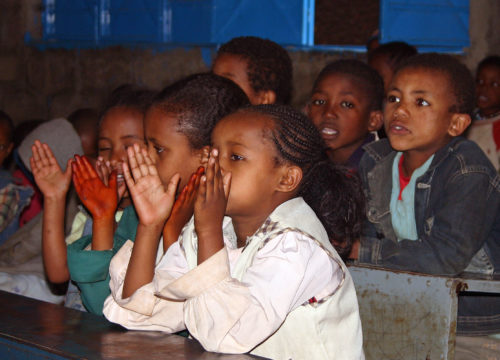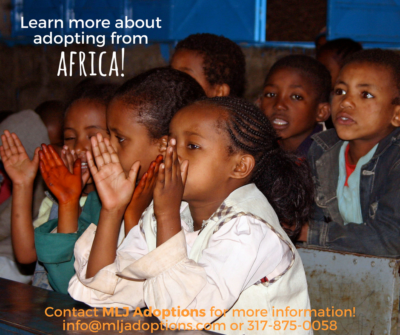 Adopting from Africa looks different than it used to. Mostly because the entire intercountry adoption landscape has changed tremendously from what it was twenty or thirty years ago. Sadly, there has been a dramatic decline in adoptions, as families are finding their options limited due to countries applying tighter restrictions, or even closing programs altogether. A number of regulations, including the implementation of The Hague Convention on Protection of Children and Co-operation in Respect of Intercountry Adoption (or Hague Convention) by many countries, and the implementation of the Universal Accreditation Act (UAA) in the U.S., are sometimes seen by adoptive parents as imposing greater hurdles for families. While it may seem the implementation of The Hague Adoption Convention and UAA are posing greater restrictions, these regulations are meant to protect vulnerable children, and offer protections to adoptive parents as well.
Adopting from Africa looks different than it used to. Mostly because the entire intercountry adoption landscape has changed tremendously from what it was twenty or thirty years ago. Sadly, there has been a dramatic decline in adoptions, as families are finding their options limited due to countries applying tighter restrictions, or even closing programs altogether. A number of regulations, including the implementation of The Hague Convention on Protection of Children and Co-operation in Respect of Intercountry Adoption (or Hague Convention) by many countries, and the implementation of the Universal Accreditation Act (UAA) in the U.S., are sometimes seen by adoptive parents as imposing greater hurdles for families. While it may seem the implementation of The Hague Adoption Convention and UAA are posing greater restrictions, these regulations are meant to protect vulnerable children, and offer protections to adoptive parents as well.
Adopting from Africa has become increasingly difficult over the years, most recently seen in two countries; Democratic Republic of Congo, and just this year in Ethiopia. Both countries, once popular for African adoption, abruptly closed their doors to international adoption without notice; notably, neither country is signatory to the Hague Convention. This left hundreds of adoptive parents in limbo, some in mid-process of adopting a child. While the U.S. State Department advocates for these adoptive parents and children, these closures have caused a great deal of heartache to both adoptive parents and children in need.
So, what options are there? Adoptive parents may see the Hague Convention and the UAA as imposing restrictions or road blocks to the adoption process, but the purpose of both instruments is, in part, to provide added protections for adoptive parents. The Hague Convention holds its signatories to the highest ethical standards and practices, and also helps guard against sudden closures due to reactionary behavior. The shut-downs in DRC and Ethiopia are prime examples of why families should consider adopting from countries that are signatory to The Hague Adoption Convention. Adopting from Haiti or Burkina Faso, both of which are signatory to the Hague Convention, offers the protection that most families are looking for.
Adoption from Burkina Faso provides a a safe and transparent option for families adopting from Africa. MLJ Adoptions’ Burkina Faso adoption program has far surpassed our expectations for timelines and number of referrals since it opened in November 2014. Over the last twelve months, MLJ families adopting from Burkina Faso have accepted matches of four children. These families have waited anywhere from 1-11 months to be matched with a child. Children matched with families ranged from children considered “healthy,” to children with medical needs, to children considered “special needs” due to their age (six and older). MLJ’s first adoption from Burkina Faso was completed last year, with our first child arriving home in 2016. This family saw their process completed just eleven months after being matched with a child!
While we have seen many changes in the adoption landscape, families should not abandon their adoption dreams, even if they are considering adopting from Africa. There are options out there! Millions of children are still in need of forever families, and for many of these children, their only hope for a family is through international adoption. International adoption is still doable, and your agency will be there to walk you through the process.
For more information on adopting from Burkina Faso, please contact us.
Photo Credit: Lead Beyond

